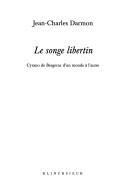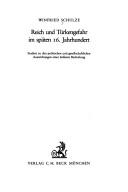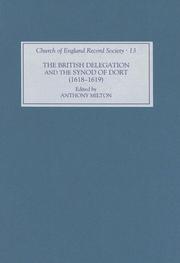| Listing 1 - 10 of 46 | << page >> |
Sort by
|
Book
Abstract | Keywords | Export | Availability | Bookmark
 Loading...
Loading...Choose an application
- Reference Manager
- EndNote
- RefWorks (Direct export to RefWorks)
Book
Year: 1888 Publisher: Amsterdam : Van Holkema,
Abstract | Keywords | Export | Availability | Bookmark
 Loading...
Loading...Choose an application
- Reference Manager
- EndNote
- RefWorks (Direct export to RefWorks)
Book
ISBN: 1299311237 148649286X 1486485251 Year: 2013 Publisher: Project Gutenberg
Abstract | Keywords | Export | Availability | Bookmark
 Loading...
Loading...Choose an application
- Reference Manager
- EndNote
- RefWorks (Direct export to RefWorks)
Authors --- French --- 17th century --- Drama --- Cyrano de Bergerac --- 1619-1655
Book
ISBN: 9789087044657 9087044658 Year: 2015 Publisher: Hilversum Uitgeverij Verloren
Abstract | Keywords | Export | Availability | Bookmark
 Loading...
Loading...Choose an application
- Reference Manager
- EndNote
- RefWorks (Direct export to RefWorks)
Redevoeringen van Jacobus Arminius (1606) en Simon Episcopius (1618) over de onderlinge verdraagzaamheid van christenen.
Book
ISBN: 2882410433 9782882410436 Year: 1994 Publisher: Yvonand : Campiche,
Abstract | Keywords | Export | Availability | Bookmark
 Loading...
Loading...Choose an application
- Reference Manager
- EndNote
- RefWorks (Direct export to RefWorks)
French literature (outside France) --- Tregian, Francis, --- Fiction --- Tregian, Francis --- -Fiction --- Fiction. --- Tregian, Francis, - -1619 - Fiction --- Tregian, Francis, - -1619
Multi
ISBN: 9067073857 9789067073851 Year: 1995 Publisher: Amsterdam : Bataafsche Leeuw,
Abstract | Keywords | Export | Availability | Bookmark
 Loading...
Loading...Choose an application
- Reference Manager
- EndNote
- RefWorks (Direct export to RefWorks)

ISBN: 2252034831 9782252034835 Year: 2004 Volume: 87 Publisher: Paris : Klincksieck,
Abstract | Keywords | Export | Availability | Bookmark
 Loading...
Loading...Choose an application
- Reference Manager
- EndNote
- RefWorks (Direct export to RefWorks)
Des Lettres satiriques et amoureuses aux États et Empires de la Lune et du Soleil, on a voulu suivre ici un Cyrano en mouvement non seulement entre les mondes, mais aussi entre les genres, et montrer comment, en ces envols et en ces défis successifs, s'est ouvert l'espace d'une littérature expérimentale pour laquelle rien ne semble plus aller de soi. Sur fond de révolution scientifique et de relativisme généralisé, l'ironie, démultipliée jusqu'au vertige par l'art de la pointe dont Cyrano use en virtuose, y intervient comme une ressource d'une fécondité rare. Songe libertin ? En quel sens ? Dans le cas de Cyrano, le concept de libertinage peut sembler opératoire pour caractériser non seulement tout un ensemble d'hypothèses et de postures hétérodoxes, mais aussi un certain type d'expériences de pensée où la part de la rêverie sur les pouvoirs de l'imagination reste éminente, au cœur même de cette «genèse de la raison classique» à laquelle le «libertinage érudit» contribue activement. À bien des égards, le mouvement libertin du XVIIe siècle français, aux contours mal définis, constitue encore pour nous un continent englouti de la pensée, largement méconnu et difficile à interpréter. Or l'œuvre de Cyrano, en sa marginalité flamboyante, peut offrir un prisme fort éclairant pour en explorer certains enjeux. En se situant au confluent de l'histoire des idées (scientifiques, morales, politiques, religieuses) et de l'histoire des formes littéraires, il s'agit ici de ressaisir un moment de crise fondamental pour les représentations de l'homme et du monde, où s'inscrivent à la fois le riche potentiel philosophique de l'œuvre de Cyrano et son inventivité foisonnante dans l'ordre de l'imaginaire.

ISBN: 3406016804 Year: 1978 Publisher: München Beck
Abstract | Keywords | Export | Availability | Bookmark
 Loading...
Loading...Choose an application
- Reference Manager
- EndNote
- RefWorks (Direct export to RefWorks)
Book
ISBN: 9780192884961 0192884964 Year: 2023 Publisher: Oxford : Oxford University Press,
Abstract | Keywords | Export | Availability | Bookmark
 Loading...
Loading...Choose an application
- Reference Manager
- EndNote
- RefWorks (Direct export to RefWorks)
Contract Before the Enlightenment represents a fresh investigation of what was then a ground-breaking approach to the law of contract written by James Dalrymple, Viscount Stair (1619-1695), lauded by some as the founding father of Scots law.As a judge and public figure, Stair was at the forefront of both political and legal developments in Scotland from the 1640s until he died in 1695. This study explores the development and reception of his ideas relating to the law of contract on the eve of the Scottish Enlightenment. It is here that Stair's legal legacy is most evident, and where the imprint of Calvinism, Aristotelianism, and Protestant natural law can be found within Scottish legal thought.In his legal treatise, the Institutions of Law of Scotland you find a sophisticated, innovative, and novel synthesis of Roman law with Stair's own Calvinist variant of a Protestant natural law theory. Yet it is also possible to find, once the theistic premises of Stair's natural law theory are dropped, the beginnings of a form of Scottish moral philosophy that rose to prominence in the eighteenth century.Undoubtedly, Stair is not only a key figure within Scottish legal history but also significant to how we understand the transition of Scottish intellectual life from the execution of Charles I to the emergence of the Scottish Enlightenment.
Contracts --- Stair, James Dalrymple, - Viscount of, - 1619-1695 --- Royaume-Uni --- Stair, James Dalrymple, Viscount of, 1619-1695 --- Contracts. --- History --- Stair, James Dalrymple, --- 1600-1699. --- Scotland.

ISBN: 1843831570 9781843831570 Year: 2005 Volume: 13 Publisher: Woodbridge : Boydell press,
Abstract | Keywords | Export | Availability | Bookmark
 Loading...
Loading...Choose an application
- Reference Manager
- EndNote
- RefWorks (Direct export to RefWorks)
Synod of Dort (1618-1619) --- Church of England --- History --- 17th century
| Listing 1 - 10 of 46 | << page >> |
Sort by
|

 Search
Search Feedback
Feedback About UniCat
About UniCat  Help
Help News
News